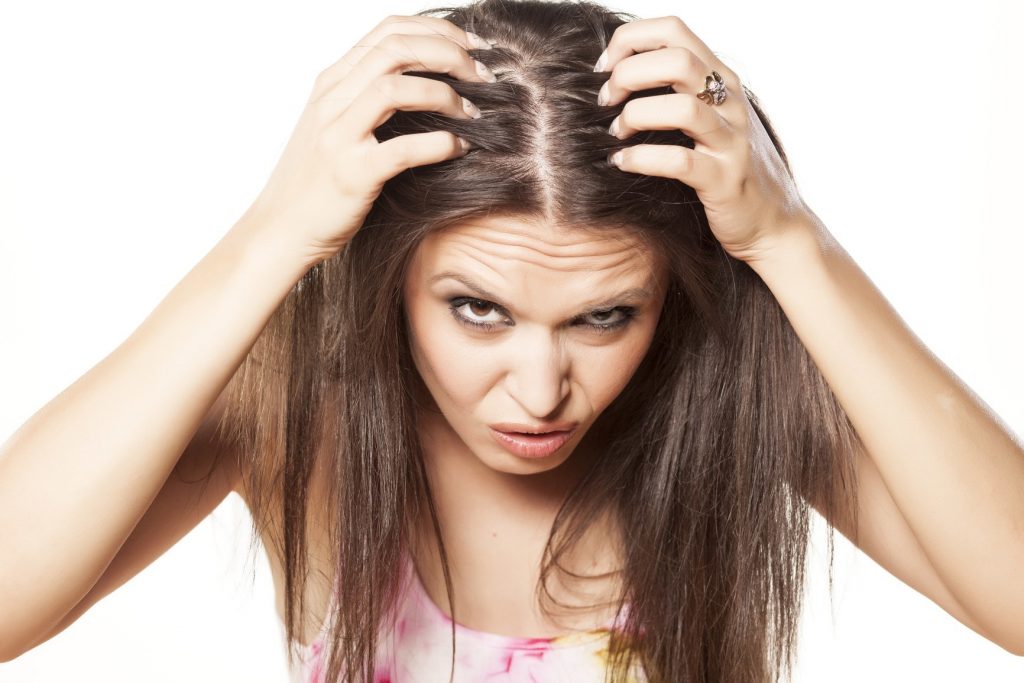Have you ever wondered why your scalp feels tender or irritated after spending time outdoors in the sun? Scalp sunburn is more common than you might think, and it can lead to discomfort, peeling, and even long-term damage if left untreated. While most people focus on protecting their skin from UV rays, they often forget about the scalp, which is equally vulnerable to sunburn. Understanding the causes, symptoms, and treatments for a sunburned scalp can help you take better care of your hair and scalp health.
Scalp sunburn occurs when the skin on your scalp is exposed to excessive ultraviolet (UV) radiation from the sun. This condition can affect anyone, regardless of hair type or thickness, and it often goes unnoticed until it becomes severe. In this article, we will explore everything you need to know about scalp sunburn, including how to prevent and treat it effectively.
Whether you're dealing with a mild case of scalp sunburn or want to learn how to protect your scalp from future damage, this guide will provide you with actionable insights and expert advice. Let's dive in!
Read also:What Boots To Wear With Wide Leg Pants The Ultimate Guide For Stylish And Comfortable Looks
Table of Contents
- Causes of Scalp Sunburn
- Symptoms of a Sunburned Scalp
- Risk Factors for Scalp Sunburn
- Diagnosing Scalp Sunburn
- Treating a Sunburned Scalp
- Preventing Scalp Sunburn
- Long-Term Effects of Scalp Sunburn
- Hair Care Tips for Sunburned Scalp
- Natural Remedies for Scalp Sunburn
- Frequently Asked Questions
Causes of Scalp Sunburn
Scalp sunburn primarily occurs due to prolonged exposure to ultraviolet (UV) radiation from the sun. Unlike other parts of the body, the scalp is often overlooked when applying sunscreen, making it more susceptible to damage. People with thinning hair, bald spots, or those who frequently wear their hair up are at a higher risk of experiencing scalp sunburn.
Common Causes
- Prolonged sun exposure without protection
- Thinning hair or bald spots
- Not using sunscreen on the scalp
- Reflective surfaces like water, sand, or snow
It's important to note that UV rays can penetrate clouds, so even on overcast days, your scalp can still get sunburned. Additionally, reflective surfaces such as water, sand, and snow can intensify UV exposure, increasing the risk of scalp sunburn.
Symptoms of a Sunburned Scalp
Identifying the symptoms of a sunburned scalp is crucial for timely treatment. The signs may vary depending on the severity of the burn, but common symptoms include:
- Tenderness or pain on the scalp
- Redness or inflammation
- Peeling or flaking skin
- Itching or irritation
- Hair loss in severe cases
In some cases, individuals may experience headaches or dizziness due to the discomfort caused by scalp sunburn. If left untreated, these symptoms can worsen and lead to more serious complications.
Risk Factors for Scalp Sunburn
Certain factors can increase your likelihood of developing a sunburned scalp. Understanding these risk factors can help you take preventive measures to protect your scalp:
- Thinning hair or baldness
- Fair or sensitive skin
- Prolonged outdoor activities
- Not wearing protective headwear
- Using hair products that increase sun sensitivity
Individuals with fair or sensitive skin are particularly vulnerable to sunburn, including scalp sunburn. Additionally, using hair products that contain alcohol or other harsh chemicals can make your scalp more sensitive to UV rays.
Read also:Discover The Stunning Beauty Of Red Blond Hair Color
Diagnosing Scalp Sunburn
Diagnosing scalp sunburn is relatively straightforward, as the symptoms are often visible and noticeable. However, if you're unsure about the severity of your condition, consulting a dermatologist is recommended. A dermatologist can assess your scalp and provide a proper diagnosis, especially if you're experiencing severe symptoms or complications.
When to See a Doctor
Seek medical attention if you experience any of the following:
- Severe pain or swelling
- Blistering or open sores
- Signs of infection, such as pus or red streaks
- Fever or chills
Early intervention can prevent long-term damage and ensure proper healing of the scalp.
Treating a Sunburned Scalp
Treating a sunburned scalp involves soothing the affected area, reducing inflammation, and promoting healing. Here are some effective treatment options:
Home Remedies
- Apply a cold compress to reduce swelling and discomfort
- Use aloe vera gel to soothe the scalp
- Moisturize with gentle, fragrance-free products
Over-the-Counter Treatments
- Hydrocortisone cream for itching and irritation
- Anti-inflammatory medications like ibuprofen
- Specialized scalp treatments formulated for sunburn
In severe cases, a dermatologist may prescribe stronger medications or recommend professional treatments to accelerate healing.
Preventing Scalp Sunburn
Prevention is key to avoiding scalp sunburn and its associated complications. Here are some practical tips to protect your scalp from UV damage:
Protective Measures
- Wear a wide-brimmed hat or cap when outdoors
- Apply sunscreen specifically designed for the scalp
- Stay in shaded areas during peak sun hours
- Use an umbrella or parasol for additional protection
Choosing the Right Sunscreen
When selecting a sunscreen for your scalp, look for products that are lightweight, non-greasy, and formulated for sensitive skin. Ensure the sunscreen provides broad-spectrum protection against both UVA and UVB rays.
Long-Term Effects of Scalp Sunburn
Repeated exposure to UV radiation without proper protection can lead to long-term effects on the scalp. These include premature aging, increased risk of skin cancer, and permanent hair damage. Protecting your scalp is essential for maintaining overall scalp health and preventing these potential consequences.
Potential Complications
- Skin cancer, such as melanoma or squamous cell carcinoma
- Chronic inflammation and scarring
- Thinning hair or hair loss
Regular check-ups with a dermatologist can help identify and address any potential issues early on.
Hair Care Tips for Sunburned Scalp
Proper hair care is crucial for promoting healing and preventing further damage to a sunburned scalp. Here are some tips to keep in mind:
- Avoid using hot tools or harsh chemicals on your hair
- Wash your hair gently with a mild, sulfate-free shampoo
- Condition your hair regularly to maintain moisture
- Protect your hair with a silk or satin scarf when sleeping
These practices can help soothe irritation and support the healing process.
Natural Remedies for Scalp Sunburn
Many natural remedies can provide relief for a sunburned scalp. These remedies are gentle, effective, and easily accessible:
- Aloe vera gel: Known for its soothing properties
- Coconut oil: Helps moisturize and reduce inflammation
- Oatmeal: Soothes irritation and promotes healing
- Green tea: Contains antioxidants that protect the scalp
Incorporating these natural remedies into your routine can complement traditional treatments and enhance scalp health.
Frequently Asked Questions
1. Can scalp sunburn lead to hair loss?
Yes, severe scalp sunburn can cause temporary hair loss due to damage to the hair follicles. Proper treatment and protection can help prevent long-term effects.
2. Is it safe to use sunscreen on my scalp?
Yes, using sunscreen specifically formulated for the scalp is safe and effective. Look for lightweight, non-greasy options to avoid weighing down your hair.
3. How long does it take for a sunburned scalp to heal?
Healing time varies depending on the severity of the burn. Mild cases may resolve within a few days, while severe cases can take up to a week or more.
Conclusion
Scalp sunburn is a common yet often overlooked condition that can cause discomfort and long-term damage if not addressed properly. By understanding the causes, symptoms, and treatments for scalp sunburn, you can take proactive steps to protect your scalp and maintain its health.
We encourage you to share this article with others and leave a comment below if you have any questions or additional tips. Remember, prevention is key, so always prioritize protecting your scalp from harmful UV rays. Stay safe and enjoy the sun responsibly!


